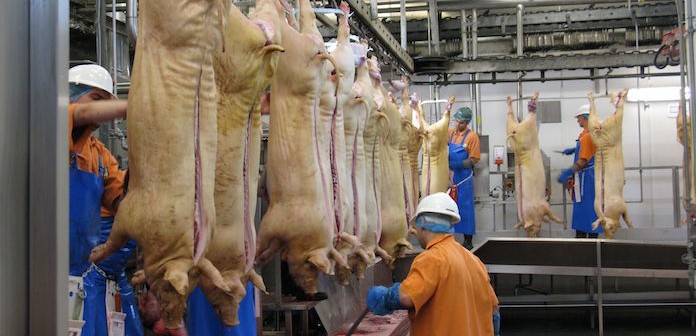Mexico’s decision to slap new, higher tariffs on unprocessed pork may have a ripple effect on the entire US pork industry, according to Virginia Tech agribusiness expert, Olga Isengildina Massa.
Ms Massa said: “Mexico is one of our largest trade partners. The first layer of the industry that will be affected will be the packers, but they will have to pass along potential losses down the supply chain to producers.
“In the US we produce a lot more pork than we consume domestically. If we are not able to export as much due to higher prices faced by Mexican consumers, the industry will have to adjust by either finding new export markets, increasing domestic processing – as the tariffs are on unprocessed pork – or reducing prices. Given that the profit margins are already very tight, the last option may lead to some contraction.”
She pointed out that futures markets overall are not too preoccupied with the news in the short term.
“There may be hope that continued trade negotiations will be able to overcome this news,” she said. “However, trade wars increase the costs of trading, so the total effect is usually negative.”
Mexico said it would impose a 10% tariff on US pork shoulder and legs, with the tariff rising to 20% by July 5.
US pork production in the first four months of 2018 was nearly four million tonnes, a 4.6% increase over the same period last year, according to new figures from AHDB Pork. The industry is therefore on track to meet the USDA forecast of 12.2 million tonnes in 2018, compared with 11.6 million tonnes in 2017.




